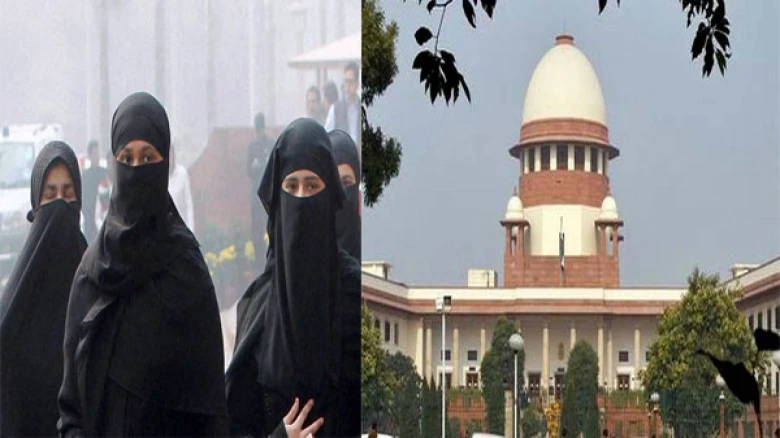The landmark 1985 Shah Bano case established that Section 125 CrPC is indeed applicable to Muslim women, a decision later altered by the 1986 Muslim Women Act, which was subsequently validated in 2001.
Digital Desk: The Supreme Court ruled on Wednesday that under Section 125 of the Code of Criminal Procedure (CrPC), a Muslim woman has the right to claim maintenance from her husband. Justices BV Nagarathna and Augustine George Masih, sitting on the bench, rejected a petition filed by a man challenging an order to pay interim maintenance to his divorced wife under Section 125 CrPC.
The bench also clarified that if the woman obtains a divorce during the pendency of her application, she can seek relief under the 2019 Act, which provides an additional remedy alongside Section 125 CrPC. They emphasized that the Muslim Women (Protection of Rights on Divorce) Act 1986 does not supersede secular law.
"We are dismissing the criminal appeal, affirming that Section 125 CrPC applies to all women, not exclusively to married women," Justice Nagarathna stated. The court underscored that the law on maintenance applies universally to all women.
The landmark 1985 Shah Bano case established that Section 125 CrPC is indeed applicable to Muslim women, a decision later altered by the 1986 Muslim Women Act, which was subsequently validated in 2001.
During the recent hearing, the bench stressed that Indian husbands should recognize their responsibility towards their financially dependent wives. They acknowledged efforts made by such husbands to fulfill their obligations.
The case originated from a petition by a man contesting the Telangana High Court's order to pay Rs 10,000 monthly interim maintenance to his ex-wife. Initially, a Family Court had mandated Rs 20,000 monthly, but this was contested in the High Court post their divorce under Muslim personal law in 2017. The High Court adjusted the maintenance to Rs 10,000 per month and directed the Family Court to conclude the matter within six months.
The respondent, the man's former wife, brought her grievances regarding claims under Section 125 CrPC before the Supreme Court. The man's lawyer argued that as per the Muslim Women Act 1986, a divorced woman cannot seek relief under Section 125 CrPC, advocating the 1986 Act's preferential treatment for Muslim women.
Justices Nagarathna and Masih, in separate but concurring judgments, affirmed the right of the Muslim woman to claim maintenance from her former husband and dismissed the man's plea.

Leave A Comment